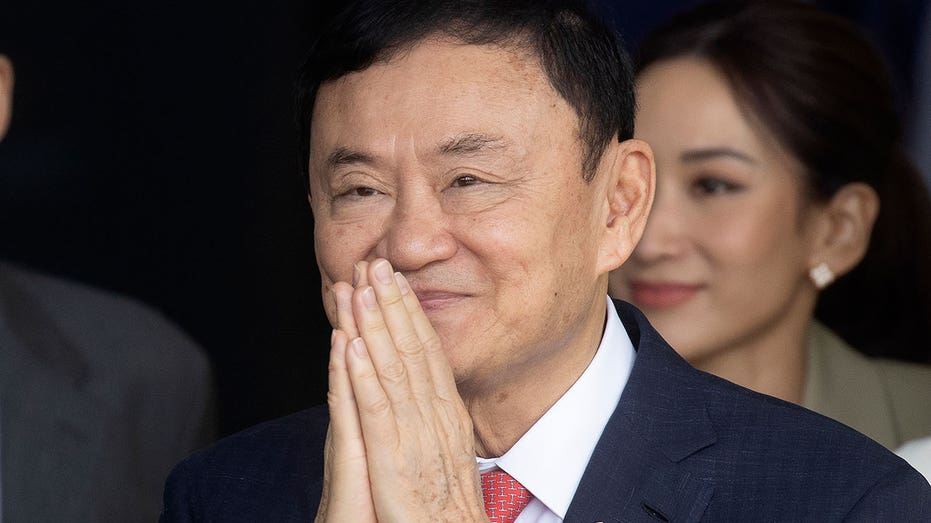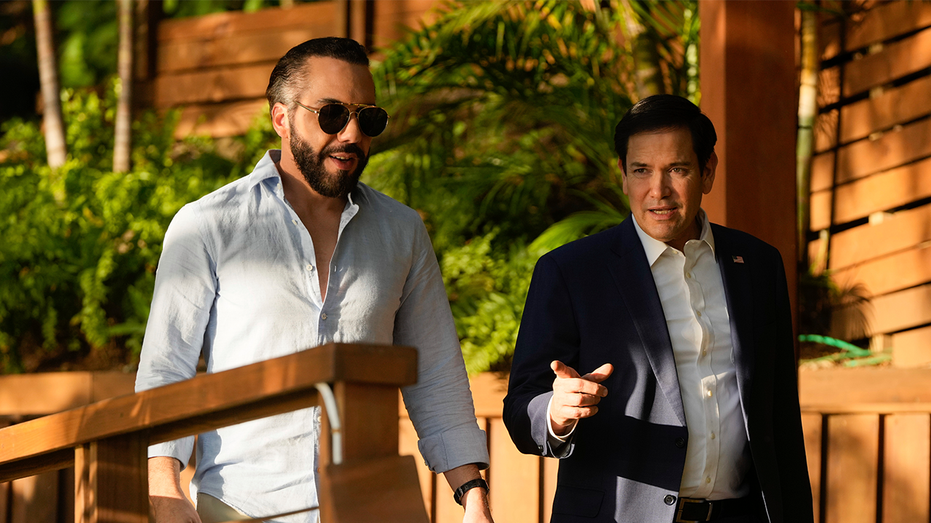Thailand's former Prime Minister Thaksin Shinawatra to be released after being granted parole
Thailand's former Prime Minister Thaksin Shinawatra has been granted parole after serving a prison sentence for corruption and abuse of power, officials say.

Thailand’s former Prime Minister Thaksin Shinawatra, who last year returned from more than a decade of self-imposed exile to serve a prison sentence for misdeeds committed while in office, has been granted parole and could be released this weekend, the country’s justice minister announced Tuesday.
Parole for Thaksin would be a symbol of reconciliation between his populist political party and the country's conservative establishment, a rivalry that defined Thai politics for nearly 20 years and led to two military coups.
Justice Minister Tawee Sodsong told reporters ahead of the weekly Cabinet meeting in Bangkok that Thaksin qualified for early release because he is in the eligible category of inmates who have serious illnesses, are disabled or are aged over 70. Thaksin is 74 years old.
THAILAND CORRECTION DEPARTMENT REJECTS 'INMATE' LABEL FOR FORMER PRIME MINISTER THAKSIN SHINAWATRA
Tawee did not confirm the date that Thaksin will be released, but it is widely expected he could be released as soon as this weekend.
He is currently confined to a police hospital in Bangkok where he is serving time for convictions related to corruption and abuse of power while in office, convictions he decried as politically motivated.
Opponents have charged that serving his sentence in a hospital was a special privilege, suggesting that it was part of a part of a political deal between his party and the military.
THAILAND'S KING REDUCES PRISON SENTENCE OF FORMER PRIME MINISTER THAKSIN SHINAWATRA TO A SINGLE YEAR
Thaksin had been in exile since 2008, but voluntarily returned to Thailand in August last year and reported to prison to begin serving an eight-year sentence. He arrived back in his homeland the same day Srettha Thavisin of the Thaksin-backed Pheu Thai party secured the post of Prime Minister with the support of military-linked parties.
He was moved almost immediately to the hospital on grounds of ill health and about a week after that, King Maha Vajiralongkorn reduced his sentence to a single year.
Thaksin, a telecommunications billionaire who used his fortune to build a populist political party, served as prime minister from 2001 to 2006, when he was ousted by a military coup.
He fled the country in 2008 to avoid arrest, but his allies remained a major force in Thai politics. His sister led the country from 2011 to 2014, when she left office weeks before another coup that installed a military government that held power until elections last year.
Srettha told reporters after the Cabinet meeting that Thaksin’s parole is in line with Corrections Department rules as he has already served his time. Srettha praised Thaksin as "one of the most popular prime ministers in the Thai political history" and someone who has long worked for the good of the country.
Srettha represents the Pheu Thai party, the latest incarnation of the party Thaksin founded as Thai Rak Thai, and which he's still considered the de facto leader of.
Thaksin is not yet clear of all legal hurdles. Thai officials said last week they have reopened an investigation into allegations of defaming the monarchy made against Thaksin almost nine years ago. If the Office of the Attorney General decides to indict him, Thaksin could be detained again as soon as he is released.
Thaksin’s daughter, Paetongtarn Shinawatra, who heads the Pheu Thai party, told reporters last week that she has prepared his residence in Bangkok in anticipation of his release.
Military-backed parties fared badly in last year's general election, and Thailand's royalist conservative establishment was believed to have favored reconciliation with Thaksin's political machine in order to keep the more progressive Move Forward party out of power.
Moved Forward placed first in the polls but was blocked from taking power when the members of the military-appointed Senate refused to approve its candidate for prime minister.
What's Your Reaction?
















